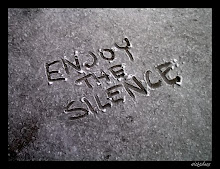In Indonesia, larger part of population lives in rural area. Consequently most of them live their life traditionally. Yet, it's undeniable that information technology has brought about big change in some aspect of their life.
As far as parent-and-children relationship is concerned, relatively, there are no dramatic differences. This we can divide into two extreme positions and from which then to draw some types of such relationship.
These two extremes are parents who are fully totalitarian in their relationship with their children and parents who are extremely liberal in their way conducting their relationship with them. Of course, we'll feel difficult to find such extreme kinds.
Typically, traditional family- like such of Javanese and Madurese-will demand from their young people to respect everyone older then them, with special emphasize on someone who births you. This in itself is good and, I think, no parent would deny that they hope their children to respect them. And this is very natural inclination of human being. Everyone who has good character will do it.
This had happened for long time and, to some extent, is still happening these days. To respect our parents, for religious people, is to obey one of the most highlighted commands in the Scripture, regardless of what our faith may be, I'm sure that every religion will stress this matter. Even, when you have no religious alliance, you will naturally find-or more precisely feel-that somehow to respect your parents is your obligation. It is our natural tendency to feel it, sown by God out of His bounty for the believer or misunderstably existed within us for the atheist.
But then, when their children grow up and start to have ability to understand this world sometime differently from their parents' way of thinking, and then to choose their own choices, something will happen; conflict, either openly or secretly.
And this, it seems to me so, will occur more often in Indonesian traditional society which there is almost no limitation for information coming from 'outside'. There will be clash of cultures, that is, between traditional culture and modern culture brought by information technology. However, this is not the case in many traditional families, moreover in families living in city, town, or suburb. This is because, I think, they are less traditional. By traditional families I mean those who bear their traditional norms as unchangeable things and no one should try to change, moreover their children. The more inclined they are to their tradition, the more traditional they are.
For families living in urban area to give more tolerance to their children is considerably easy. This might be due to openness of information they and their children can gain. For, someone who knows more will become more tolerance, this at least in many cases. This freedom is a wise to choose if accompanied with consultative function from parents.
On the contrary, freedom to choose is somewhat luxurious stuff for many children originating from rural and traditional family. For them, in many cases, it's not easy to make their own decisions. In most instances, they can't decide many things relating to theirselves. Their parents do it all, for their good, they would say. However for some people to decide by their selves makes them more comfort. They don't have to always rely on their parents to decide something and this, in effect, will get them more prepared in facing future. Nevertheless we can hardly find parents from traditional family-in the sense we mention above-to give their children more freedom. This attitude is because parents traditionally intuitively want to see their children happy but, sadly, from their version of happiness. They almost won't, in some cases, even listen to their children what happiness for them is. It’s all about monologue, while the dialog is always the best. The other reason might be that children-until they get married-in traditional family is more dependent economically to their parents resulting in other dependences. That's why children being independent from their parents have freer choice.
Actually, this time in which informations flood us and it's seemingly impossible to control and sort them for our children, it seems the best for parents to let their children make their own choice while listening, talking each other and advising. This will make them more responsible and independent. Added to this, if they make choices they need, they will be mentally healthier and don't need to find out their identity along their life. For, as Candy Natazia said, the choices you made in life define who you are and what you stand for.
Wednesday, 4 June 2008
What Parents Do Here
Subscribe to:
Post Comments (Atom)








No comments:
Post a Comment